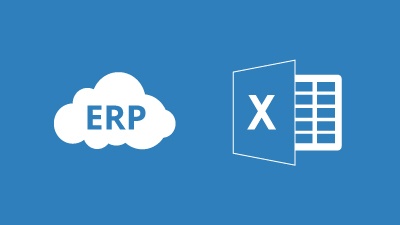ERP Replacement Considerations - ERP Series Part 2
Business leaders and end-users alike know one undeniable truth: Your ERP system is at the heart of your business, and just like the human body, it’s not possible to live without the heart. This is why ERP decisions are so complicated: Even if it’s necessary to make an upgrade, this upgrade affects everyone from the purchasing department to the sales team to the supply chain leaders, and everyone has their own needs and opinions on your business’ next steps.
In addition to the noise from within your organization on your ERP upgrade, it’s even louder when you start speaking with vendors and solutions providers trying to sell you different solutions. How can you cut through the noise?
At Cloud 9 ERP Solutions, we’ve spent nearly a quarter of a decade helping organizations make well-informed, confident ERP decisions, and would like to share with you two new guides that will help you know when it’s time to upgrade your ERP system and whether the cloud is the right deployment option for your business.
Is it Time to Replace Your ERP System?
Businesses commonly outgrow their ERP solution or continue using it well past the software’s expiration date. Once an organization’s leaders begin seeing that their current ERP system is unable to handle the needs of their business, the two most dangerous courses of action are a) inaction, and b) hastily jumping into an ERP decision.
This is why it pays to know the warning signs that your ERP system is past its prime or nearing its expiration date—so that you can get the ball rolling without jumping into something that’s not right for your business. This guide, When Should You Replace Your ERP System, shares the warning signs, including:
- It does not support the needs of the business (lacks functionality, is hard to use, response time is too slow)
- Operating costs are too high
- You rely on spreadsheets to get things done
- Executives get little useful insight from the system (lack of dashboards, self-service BI, or they are difficult to use)
Additionally, this guide shares some of the basic benefits of what a modern ERP solution can do for your business:
- Increase sales and improve customer service
- Improve cash management and reduce outstanding receivables
- Reduce purchasing and production costs; increase efficiency
- Improve inventory turnover
- Better utilize people, equipment and materials
Download the free When It’s Time to Upgrade Your ERP System guide here.
Is the Cloud Right for ERP?
If you’ve noticed that some of the pain points highlighted by the previous guide hit home, and you’ve resolved to upgrade your ERP, one of the next decisions you’ll need to make is to choose the deployment model—namely asking yourself, “Is Cloud Computing the Right Deployment Method for My Business?”
Cloud computing has been a big talking point at organizations for the past decade, and has moved from personal to SMB to the enterprise. This guide, Is the Cloud Right for My Business, shares a few considerations you need to make if you were considering the cloud for your ERP system.
Among the takeaways:
- When done right, a cloud ERP deployment should be invisible to system users
- When looking at software, consider the software first, then the deployment option. Making the deployment option first limits your software choices, and could trap you with the wrong software.
- Cloud computing doesn’t necessarily cost less (or more) than conventional on-premise deployment.
Download the entire guide, Should I Move My ERP to the Cloud here.
Making an Informed Decision
When looking at ERP software, the only thing more dangerous than inaction is hasty and uninformed action. Start looking at new options before you need to make the move, know what questions to ask, and be ready for common challenges that come when making a decision to replace something as mission-critical as ERP. If you have any questions about the move to ERP, contact Cloud 9 ERP Solutions for more information.


